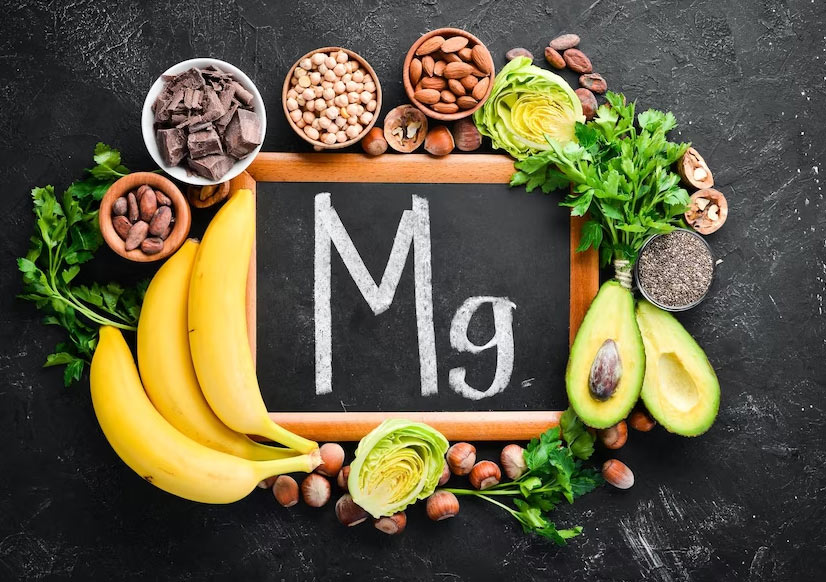.jpg)
Menstrual cramps can cause tremendous discomfort. At times, the pain is so brutal that some women resort to Over-The-Counter pain relievers to ease the symptoms.
Interestingly, magnesium, an essential mineral that helps facilitate several functions in the body, is also believed to reduce distressing menstrual symptoms like bloating, abdominal pain, and fatigue. We spoke to Dr Astha Dayal, Lead Consultant-Obstetrics and Gynaecology, CK Birla Hospital, Gurugram, to understand whether the information was accurate.
Table of Content:-
Also Read: Menstrual Health: Expert Decodes 5 Menstrual Disorders
Can Magnesium Help Relieve Menstrual Cramps?
.jpg)
Severe period pain, also called dysmenorrhea, is estimated to affect about 50–90% of women in their reproductive years, according to a study published in the BMC Women's Health. The condition is often accompanied by other symptoms, including diarrhoea, nausea, vomiting, headaches, and dizziness.
For some people, magnesium may aid with period pain relief, said Dr Dayal.
“Magnesium is an important mineral that is required for many body processes, such as nerve and muscle communication. It may be able to relieve menstrual cramps because it is thought to have muscle-relaxing qualities,” she shared, adding that individual responses can differ, even though some research points to a possible connection between magnesium supplements and lessened menstruation pain.
A 2022 study published in the journal Cureus suggests a daily intake of 250 mg of magnesium can effectively manage symptoms associated with dysmenorrhea.
Past research published in the Iranian Journal of Nursing and Midwifery Research noted that taking vitamin B6 with magnesium significantly reduced the effects of premenstrual syndrome (PMS).
Dr Dayal said, “In certain cases, when food intake is minimal or when a person has a particular health condition that may increase their requirement for magnesium, supplementation can be considered.”
“Some circumstances in which magnesium supplementation may be suggested include women who are nursing or pregnant,” she added.
But before taking supplements, it is important to speak with a doctor because consuming too much magnesium might have negative effects, the doctor warned.
How To Get Optimum Levels Of Magnesium

Consuming the right amounts of magnesium in your diet is crucial, according to Dr Dayal.
“Magnesium is an essential mineral that is involved in many physiological processes, such as blood sugar regulation, bone health, and the function of muscles and nerves,” she said.
Some of the foods high in magnesium that can help you reach your daily needs include:
- Leafy greens like kale and spinach
- Nuts and seeds like almonds, cashews, and pumpkin seeds
- Whole Grains
- Fish
- Dairy products
Also Read: Magnesium Deficiency: Warning Signs Of Low Magnesium Levels
Other Ways To Relieve Period Cramps
.jpg)
When it comes to period cramps, there are several ways to ease the pain. These include:
- Eating a balanced diet rich in fruits, vegetables, whole grains, and foods loaded with nutrients that help balance hormone levels and relieve PMS symptoms
- Reducing the consumption of sugar, salt, and caffeine
- Drinking enough water to stay hydrated throughout menstruation
- Drinking herbal drinks with components like chamomile or ginger
- Indulging in yoga, meditation, and deep breathing to alleviate stress that can trigger menstrual pain
- Using a heating pad on your abdomen
Conclusion
Sufficient magnesium intake is said to effectively alleviate menstrual pain. Given that the mineral helps improve muscle function, studies have proven that it can reduce the severity of period cramps. However, it is important to note that individual responses may vary, and consulting with a doctor is crucial for personalised advice.
Also watch this video
How we keep this article up to date:
We work with experts and keep a close eye on the latest in health and wellness. Whenever there is a new research or helpful information, we update our articles with accurate and useful advice.
Current Version